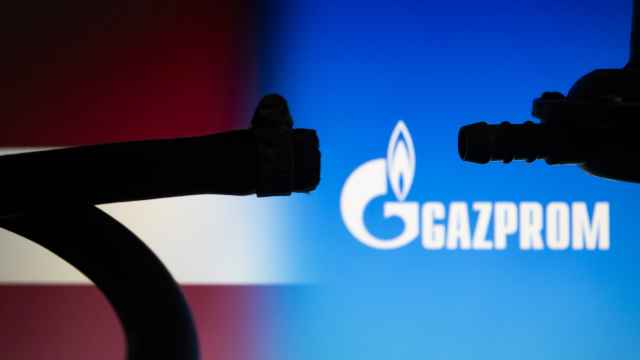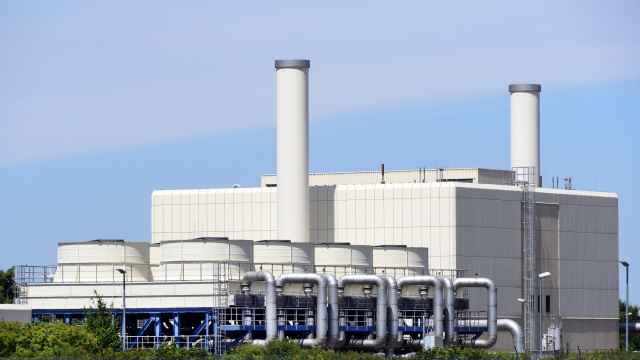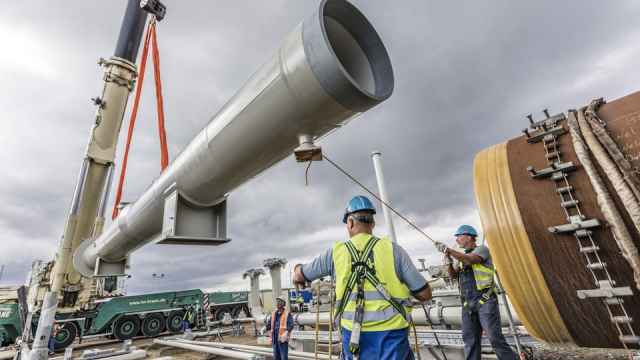German Chancellor Olaf Scholz on Wednesday raised the possibility of keeping nuclear plants going as he accused Russia of blocking the delivery of a key turbine to throttle gas supplies to Europe.
The continent's biggest economy has been scrambling for energy sources to fill a gap left by a reduction in gas supplies from Moscow.
Standing next to the turbine, Scholz said that extending the lifetime of Germany's three remaining nuclear power plants "can make sense."
The power stations, which are set to be taken off the grid at the end of the year, were "relevant exclusively for electricity production, and only for a small part of it," Scholz said.
In total, the nuclear fleet accounts for 6% of Germany's electricity output.
The government has said it will await the outcome of a new "stress test" of the national electric grid before determining whether to stick with the long-planned phaseout.
Nuclear switch
Former Chancellor Angela Merkel spectacularly decided to ditch atomic energy in 2011 following the Fukushima nuclear disaster in Japan.
Extending the lifetime of the plants has set off a heated debate in Germany, where nuclear power has been a source of controversy stretching back before Merkel's move.
The question has split the governing coalition, with Scholz's Social Democrats and the Greens hitherto skeptical, and the FDP favoring an extension.
Germany has already moved to restart mothballed coal power plants to guard against an energy shortfall.
The first of these was already "supplying electricity to the network," Scholz said Wednesday, adding that Germany had to prepare for a "difficult time."
The squeeze comes as Russia dwindles supplies of gas, which Germany has long relied on to power industry and heat homes.
Russian energy giant Gazprom has chalked up limited supplies to technical issues.
The delayed return of a turbine from Canada, where the unit was being serviced, was behind the initial reduction in deliveries via the Nord Stream 1 gas pipeline in June, according to Gazprom.
Supplies via the energy link were further reduced to around 20% of capacity in late July, after Gazprom halted the operation of one of the last two operating turbines due to the "technical condition of the engine."
Turbine trouble
Berlin has dismissed Gazprom's justifications for the reduction to supply, seeing instead a "political" move in response to the West's support for Ukraine.
The turbine which was transferred from Canada to Germany was "available and working," Scholz said Wednesday.
"There is no reason why this delivery cannot happen," he said, adding that it had received "all the approvals" needed for export from Germany to Russia.
Pipeline operators only had to say "they want to have the turbine and provide the necessary customs information for transport to Russia," Scholz said.
But Kremlin spokesperson Dmitry Peskov insisted that Gazprom was still waiting for documents confirming the unit was "not affected by sanctions."
It was however "technologically possible" in the opinion of Russian President Vladimir Putin to continue deliveries via the Nord Stream 2 pipeline, Peskov said.
The second pipeline, which runs parallel to Nord Stream 1, stands completed but was blocked by the German government in the run up to the invasion of Ukraine.
Former Chancellor Gerhard Schroeder, who signed off on the pipeline while in office, told German magazine Stern it was "the easiest solution" to use Nord Stream 2 instead.
But Scholz has rejected the call, saying Nord Stream 1 provided sufficient capacity for gas flows.
Moscow's move to limit supplies sent a "difficult message" to the world by creating doubt over Russia's commitment to its agreements, he added.
A Message from The Moscow Times:
Dear readers,
We are facing unprecedented challenges. Russia's Prosecutor General's Office has designated The Moscow Times as an "undesirable" organization, criminalizing our work and putting our staff at risk of prosecution. This follows our earlier unjust labeling as a "foreign agent."
These actions are direct attempts to silence independent journalism in Russia. The authorities claim our work "discredits the decisions of the Russian leadership." We see things differently: we strive to provide accurate, unbiased reporting on Russia.
We, the journalists of The Moscow Times, refuse to be silenced. But to continue our work, we need your help.
Your support, no matter how small, makes a world of difference. If you can, please support us monthly starting from just $2. It's quick to set up, and every contribution makes a significant impact.
By supporting The Moscow Times, you're defending open, independent journalism in the face of repression. Thank you for standing with us.
Remind me later.






